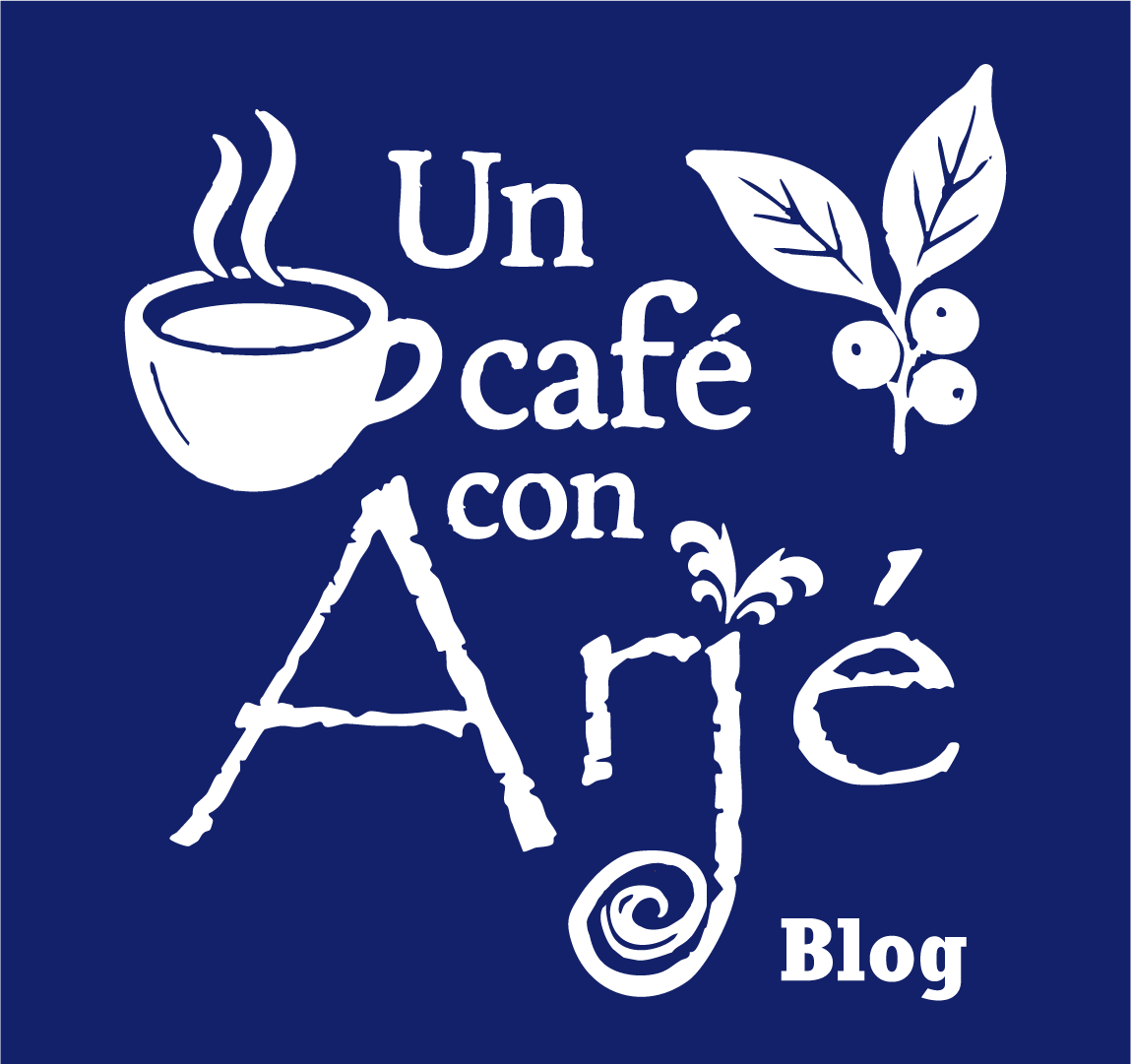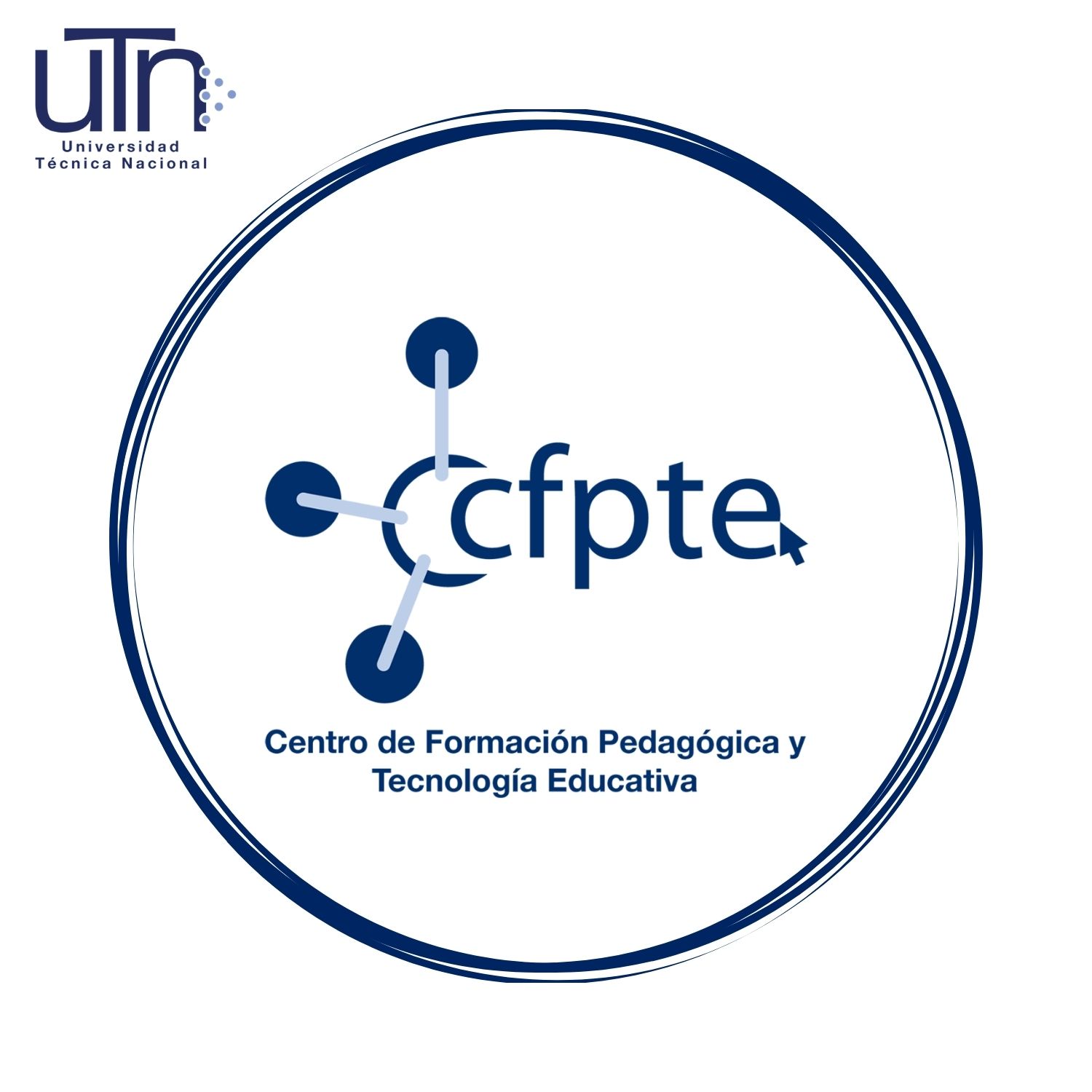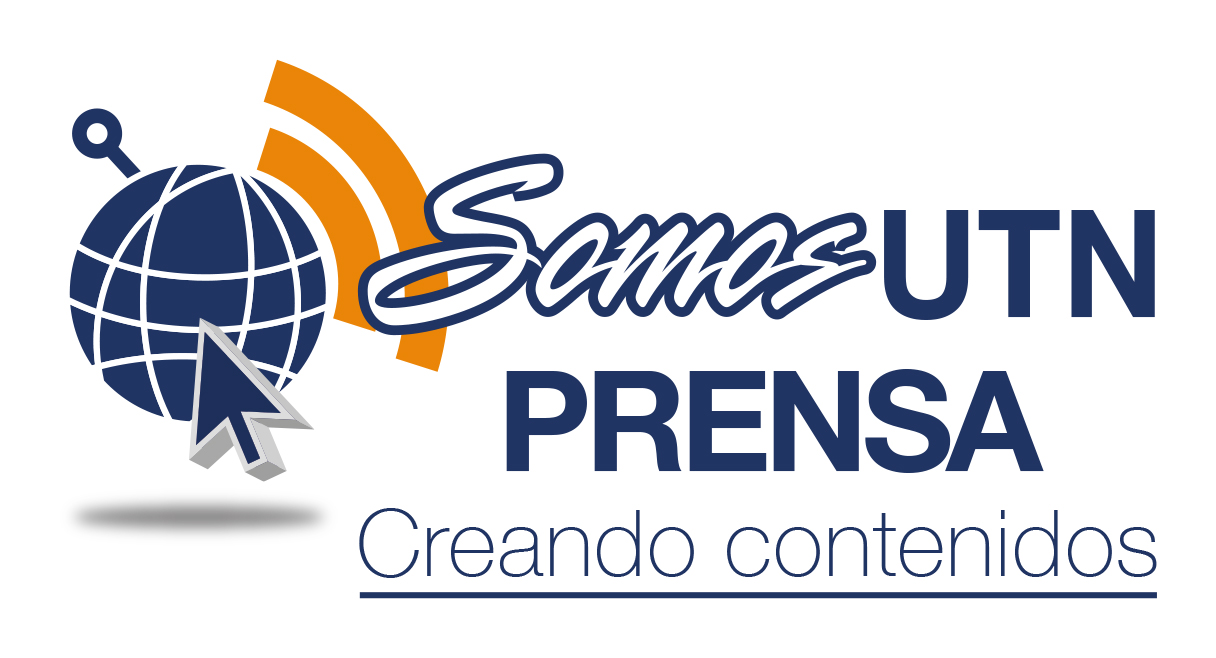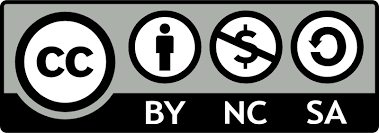Education from Biopedagogy: The Charm of Learning for Life
DOI:
https://doi.org/10.47633/arje.v6i2.689Keywords:
Biopedagogy, Autopoiesis, Endogenesis, Learning CultureAbstract
The challenges of modernity demand changes in thinking and acting. From the Complexity paradigm emerges a passion for a new way of learning through joy, tenderness, love, connection with the environment, and otherness, so that the acquired knowledge endures and enchants the existence of those who have enjoyed constructing knowledge and flavors in their journeys to cultivate themselves. Biopedagogy becomes the bridge between knowledge and the pleasure of perpetual learning. It connects us with internal formation, our endogenesis, and weaves us into the environment that we must embrace as part of the opportunity to survive and the pleasure of learning for life, it seeks to foster a genuine love for learning and an understanding of how our history, feelings, and actions reveal us as complex, holistic, and unique beings. This article aims to provoke reflection on the importance of envisioning the educational approach with the intention of transcending life through the joy of learning. It advocates for a pedagogy based on joy and is directed towards planetary citizenship, addressing anyone who serves as a mediator, facilitator, learner, or reader who wishes to fall in love with their construction process and perpetuate it in their journey. This writing establishes a connection between learning and life, emphasizing that one learns while living and lives while learning.
Downloads
References
Boff, L. (2001). Cuidar la tierra. Hacia una ética universal. México. Dabar.
Capra, F. (1996). La trama de la vida. Una nueva perspectiva de los sistemas vivos. Barcelona. Editorial Anagrama.
Casasola, W. (2018). Un estudio fenomenográfico sobre estrategias didácticas en docentes y habilidades metacognitivas en estudiantes en el proceso de enseñanza-aprendizaje del Instituto Tecnológico de Costa Rica. Tesis doctoral. Universidad de Baja California. [Archivo PDF] https: www. https://1library.co/document/zwvp1jgq-fenomenografico-estrategias-didacticas-habilidades-metacognitivas-estudiantes-aprendizaje-tecnologico.html
Delgado, M. (2017). Procesos de Mediación Pedagógicos en el Trabajo Cotidiano, en Educación Diversificada, Colegio Técnico Profesional de Liberia (Tesis de licenciatura) Universidad Técnica Nacional, Costa Rica [Archivo PDF] https://repositorio.utn.ac.cr/bitstream/handle/20.500.13077/73/TESIS%20MEDIACI%C3%93N%20PEDAG%C3%93GICA%20UTN%2019%20de%20enero%202017.pdf?sequence=1&isAllowed=y
Gómez, J., y Escobar, M. (s.f). Neurodidáctica y Educación. Una aproximación desde las humanidades incluyendo la literatura. http://soda.ustadistancia.edu.co/enlinea/congreso/congresoedu/2%20Pedagogia%20y%20dida%B4ctica/2%2017%20Neurodidactica%20y%20educacion.pdf
Lozano, C. (2020). La emergencia de un nuevo paradigma: Del pensamiento clásico al de la complejidad. Universidad Michoacana de San Nicolás de Hidalgo. UARICHA 17, 39-48.
Mandoki, K. (2006). Estética Cotidiana y juegos de la cultura: Prosaica 1. México Archivo PDF] https://pdfcoffee.com/prosaica-1-estetica-cotidiana-y-juegos-de-la-cultura-3-pdf-free.html
Maturana, H. (1999). Transformación en la convivencia. Santiago de Chile: Dolmen. https://es.scribd.com/document/410763343/transformacio-n-en-la-convivencia-pdf
Morin, E. (2003). El Método. La Humanidad de la Humanidad. La identidad humana. España: Cátedra.
Morin, E. (1999). Los siete saberes necesarios para la educación del futuro. Francia: UNESCO.
Rojas, G. (2014). El Fluir de la Ternura… (En los procesos de coaprendiencia: sentir y amar la vida desde el Ser). [Tesis doctoral], Universidad De La Salle, Costa Rica.
Rotger, M. (2017). Neurociencias y Neuroaprendizaje: las emociones y el aprendizaje, nivelar estados emocionales y crear un aula con cerebro. Córdoba. Editorial Brujas.
Sierra, S. (2019). El sentido de la mediación pedagógica y tecnológica en relación con la formación ciudadana, en docentes del nivel de educación básica secundaria en la ciudad de Medellín. [Tesis doctoral], Universidad Nacional de la Plata, Buenos Aires [Archivo PDF] http://sedici.unlp.edu.ar/bitstream/handle/10915/77573/Documento_completo.pdf-PDFA.pdf?sequence=1&isAllowed=y
Souza, D. (2017). El cerebro reconectado. https://issuu.com/sergiocristerna/docs/neurociencia_educativa_mente__cereb
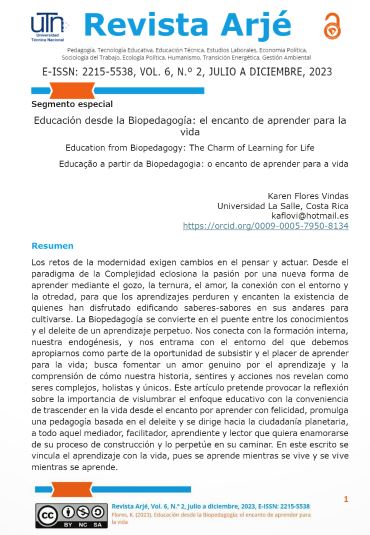
Downloads
Published
Issue
Section
License
All articles in the Revista Académica Arjé are published under the Creative Commons Attribution-NonCommercial-ShareAlike 4.0 International License (CC BY-NC-SA 4.0).
This means that:
-
Attribution: Proper credit must be given to the original authors, a link to the license must be included, and any changes made must be indicated.
-
NonCommercial: The material may not be used for commercial purposes.
-
ShareAlike: If the work is adapted or remixed, the resulting version must be distributed under the same license.
More information at: https://creativecommons.org/licenses/by-nc-sa/4.0/deed.en
